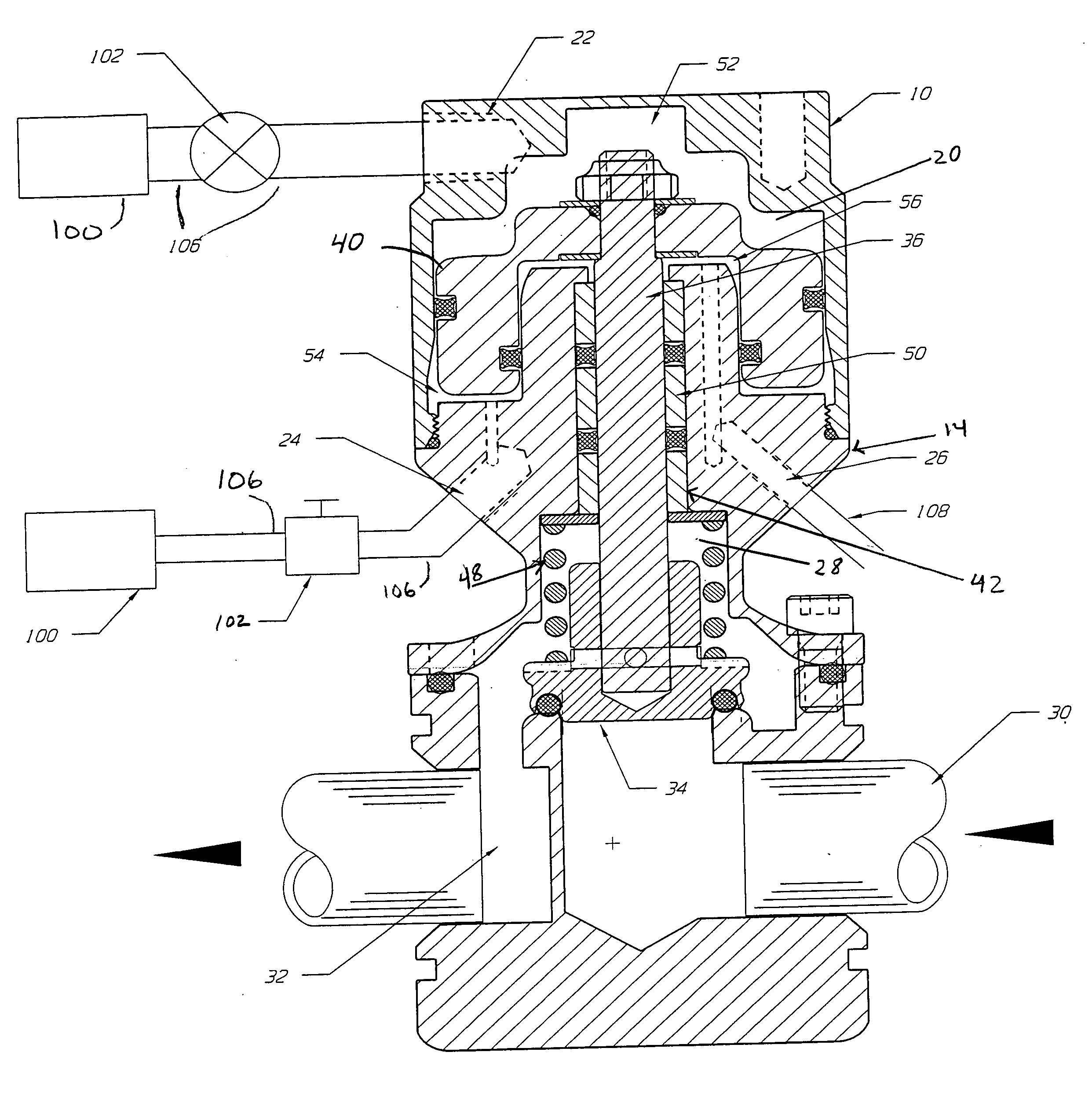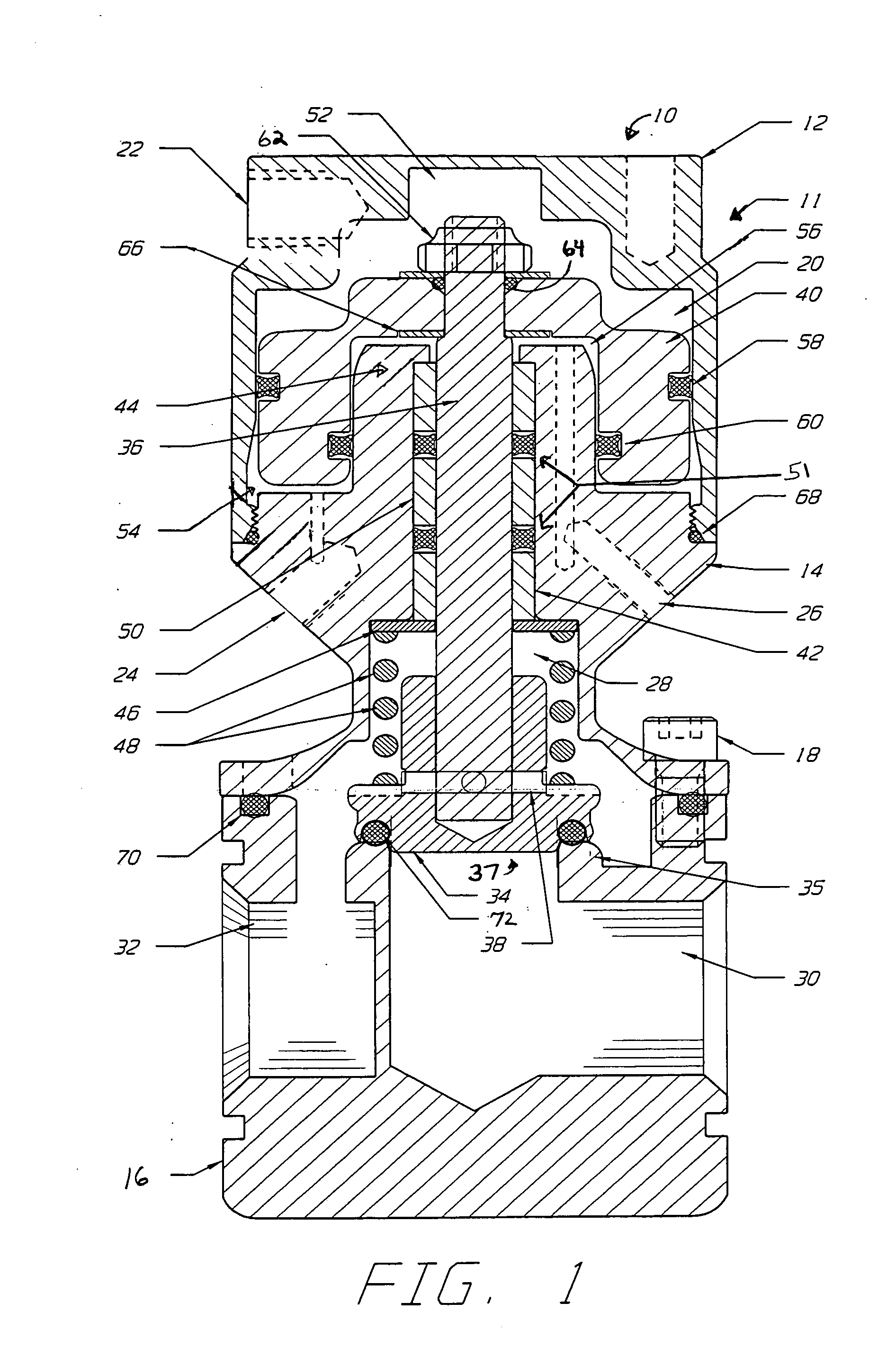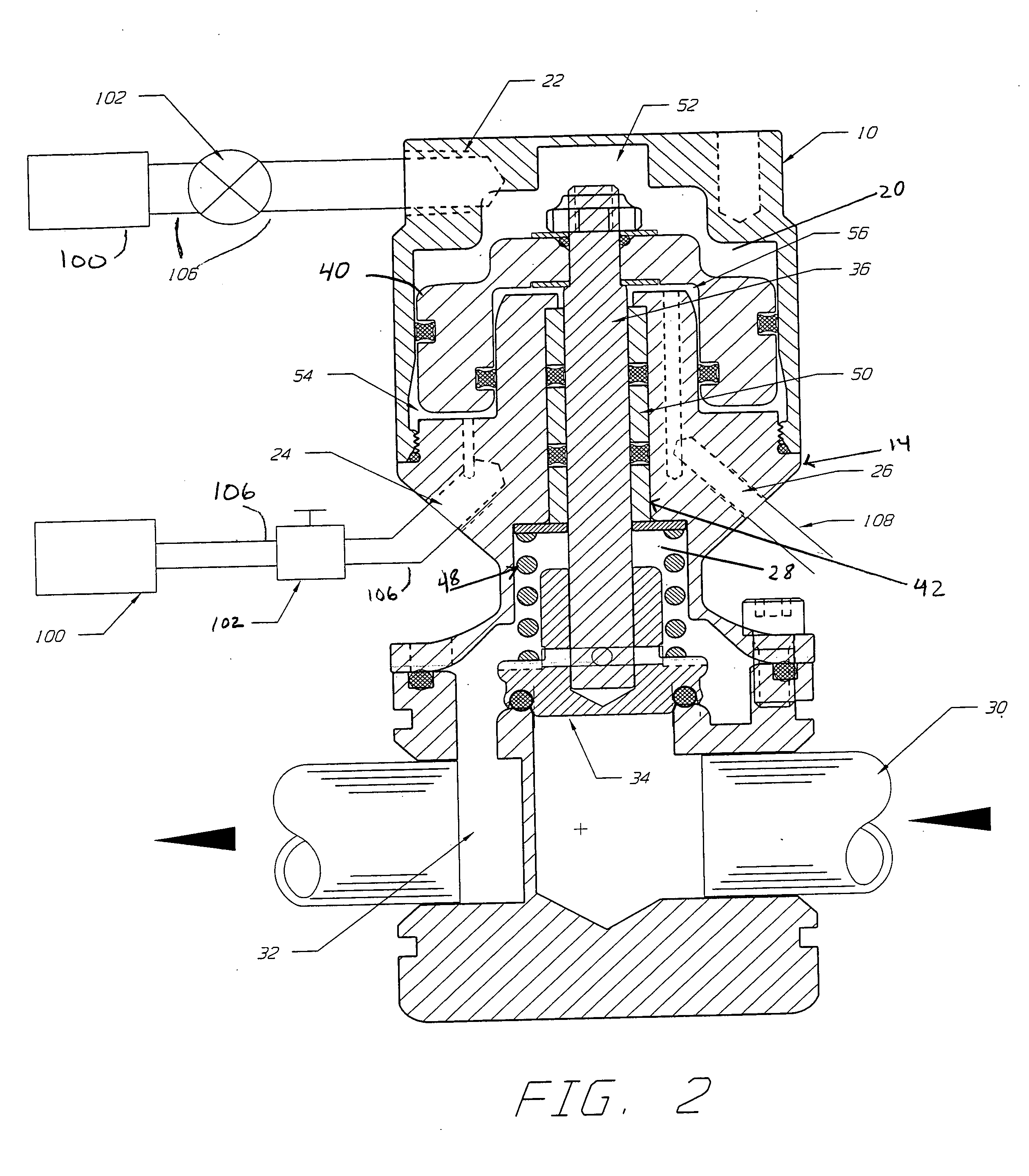Flow control valve that may be used for mold tempeerature control systems
a technology of temperature control valve and flow control valve, which is applied in the field of temperature control system of plastic injection molds, can solve the problems of reducing the service life of high-temperature fluids, requiring rugged valve construction, and reducing the production of water hammer. , to achieve the effect of reducing or eliminating the production of water hammer and long service li
- Summary
- Abstract
- Description
- Claims
- Application Information
AI Technical Summary
Benefits of technology
Problems solved by technology
Method used
Image
Examples
Embodiment Construction
[0025] Referring to the drawings, a valve in accordance with the present invention is shown generally at 10 in cross-section in FIG. 1. The valve 10 includes a top housing 12 that is connected to a valve body housing 14. The valve body housing 14 is further connected to a valve mount 16, preferably attached using mounting hardware such as, for example, at least one mounting screw 18. The top housing 12 has internal surfaces defining a piston chamber 20. In fluid communication with the piston chamber 20 are an upper pressure port 22, a lower pressure port 24, and a vent port 26. The valve body housing 14 and the valve mount 16 have internal surfaces that together define a plunger chamber 28. The valve mount 16 has a hydraulic inlet port 30 and a hydraulic outlet port 32.
[0026] A valve plunger 34 is slideably disposed within the plunger chamber 28. When the valve plunger 34 is in the closed position engaged against a valve seat 35, pressurized fluid is blocked from flowing from the h...
PUM
| Property | Measurement | Unit |
|---|---|---|
| temperature | aaaaa | aaaaa |
| mold temperatures | aaaaa | aaaaa |
| diameter | aaaaa | aaaaa |
Abstract
Description
Claims
Application Information
 Login to View More
Login to View More - R&D
- Intellectual Property
- Life Sciences
- Materials
- Tech Scout
- Unparalleled Data Quality
- Higher Quality Content
- 60% Fewer Hallucinations
Browse by: Latest US Patents, China's latest patents, Technical Efficacy Thesaurus, Application Domain, Technology Topic, Popular Technical Reports.
© 2025 PatSnap. All rights reserved.Legal|Privacy policy|Modern Slavery Act Transparency Statement|Sitemap|About US| Contact US: help@patsnap.com



